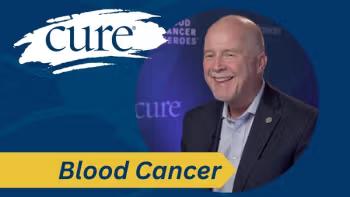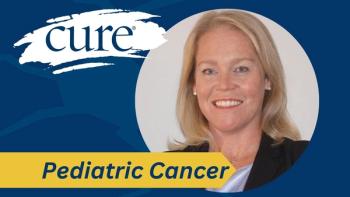
- Winter 2010
- Volume 9
- Issue 4
Cancer Chameleon
While sometimes one of the most aggressive of childhood cancers, neuroblastoma frequently goes away on its own.
William G. Woods, MD, director of the AFLAC Children’s Cancer Center in Atlanta, estimates that between 50 and 60 percent of cases diagnosed in infancy will spontaneously regress without any therapy. Its unpredictable behavior, however, makes this unusual type of cancer vexing and stressful for families whose infants, like Austin Matthews in "
“Until it starts regressing, it can grow rapidly,” explains Woods. “And we’re not able to distinguish by genetic testing those tumors that are bound to regress.”
A solid tumor of the sympathetic nervous system, neuroblastoma affects about 650 to 700 children in the U.S. each year. When neuroblastoma has spread to other organs, Woods says, “there are some destined to do very poorly.
”The survival rate for stage 4 illness is less than 50 percent, Woods says.
Thus, parents often live in anguish as they await news from each new scan, which typically occur every three to four months. Each fever, cough and tummy ache can be a wrenching emotional experience.
Infants like Austin who are diagnosed with neuroblastoma must be watched very carefully, Woods says. That includes periodic CT or MRI scans.
Although the cause of neuroblastoma is unknown, most physicians believe it is an accidental cell growth that occurs during normal development of the sympathetic nervous system. The most common site for neuroblastoma to originate is on the adrenal glands, located above each kidney.
Articles in this issue
about 15 years ago
Online Tool Helps Childhood Cancer Survivors Monitor Late Effectsabout 15 years ago
Dr. Susan Love’s Breast Bookabout 15 years ago
Making a Pointabout 15 years ago
An Update from Friendsabout 15 years ago
State Laws Guarantee More Information for Breast Cancer Patientsabout 15 years ago
Genetic Screening for Lynch Syndrome Is Cost Effectiveabout 15 years ago
Culturally Competent Careabout 15 years ago
Adjusting to Life After Cancer: Physically & Emotionallyabout 15 years ago
Treatment Updatesabout 15 years ago
Mixed Results for Zometa as a Breast Cancer Treatment



